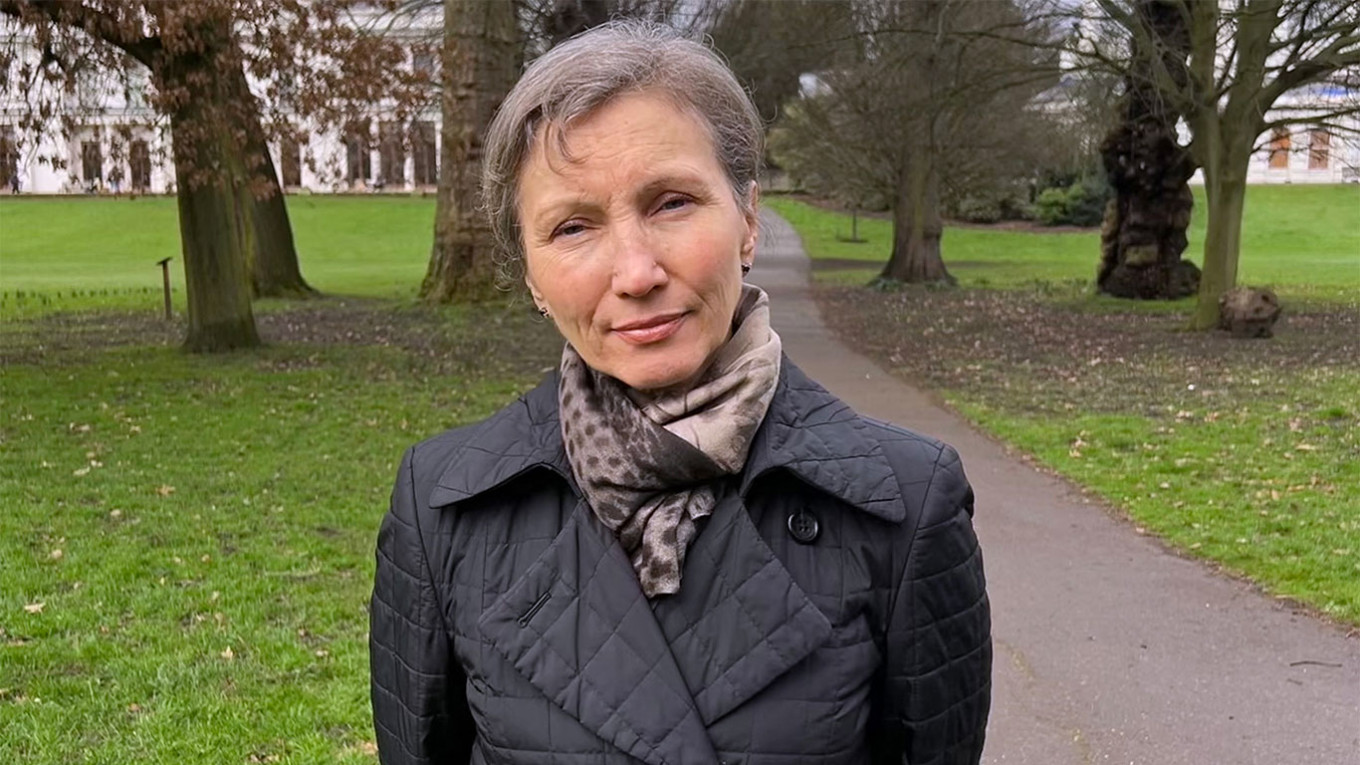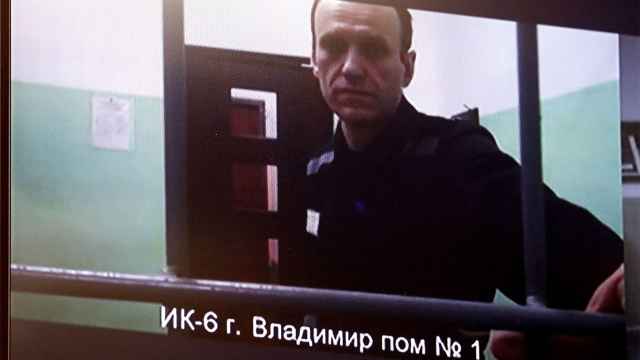LONDON — Marina Litvinenko, activist and widow of poisoned Russian dissident Alexander Litvinenko, told The Moscow Times that Yulia Navalnaya must “find her own voice” as she starts to build a political career following her husband’s death.
Navalnaya announced last week that she would continue the work of her husband Alexei Navalny, the Kremlin’s most prominent foe, after he died in an Arctic prison.
“Yulia will have a lot of advisers going forward, but she will need to follow her own instinct,” Litvinenko, 62, told The Moscow Times in the India and Pakistan Hall of the Royal Overseas League, a London members’ club.
“She has to do what she really believes, not just be an icon.”
Litvinenko spent a decade campaigning for justice after her husband, a high-profile FSB defector, was killed by a poisoning with radioactive polonium in 2006. Shortly before his death, he accused Putin of being behind his poisoning.
In 2021, the European Court of Human Rights ruled that Russia was responsible for Litvinenko’s assassination, ordering Moscow to pay his widow 100,000 euros ($108,300) in damages.
Marina Litvinenko said she sees parallels between herself and Navalnaya “on a human level,” but recognizes their circumstances are markedly different.
“I was here in the U.K. [when Alexander Litvinenko was poisoned], so I got the chance for justice. There will not be this chance in Russia while Putin is in power.”
Litvinenko often makes discreet appearances at both Russian opposition and Ukrainian events in London. Yet she has always been cautious about formally aligning herself with particular factions of the Russian opposition.
“I am not a politician, and my husband was not a politician either. But he was one of the first people to speak out [against Putin],” she said.
“The parallel between myself and Yulia [Navalnaya] is not a hundred percent, but what we see now is a young woman, a widow, telling the world to wake up. I hope that the world is ready to listen.”
Litvinenko recalled meeting with Navalnaya while visiting Navalny in the Berlin hospital where he was treated after being poisoned with Novichok in 2020.
Navalny, like Alexander Litvinenko, also blamed Putin for his poisoning.
“I was there too, in Berlin. When Alexei was in a critical condition, I met with Yulia and comforted her. I told her that when Sasha [Litvinenko] was poisoned, I believed until the last minute that he would live.”
Litvinenko said she tried to contact Navalnaya following Navalny’s death via one of his allies but has not yet received a response.
When asked whether an “opposition of widows” movement could emerge among the spouses of killed Kremlin critics, Litvinenko voiced a desire for Western policymakers to offer strong support to the spouses of Russian political prisoners who are still alive.
She pointed to Evgenia Kara-Murza, the wife of jailed Russian journalist Vladimir Kara-Murza, who has been lobbying for her husband’s release since he was sentenced to 25 years in Russian prison last year.
Litvinenko expressed frustration over failed talks between Kara-Murza’s allies and the British Foreign Office to negotiate the release of Kara-Murza, a dual Russian-British citizen whose health has deteriorated in prison.
“I know there was an official request via the U.K. government to trade Vladimir Kara-Murza for some spy, but unfortunately the Foreign Office and [Foreign Secretary] David Cameron said ‘We can’t do this’,” she said.
“When [Russia takes] hostages, they always ask to exchange with a spy, which of course is not equivalent.”
Last week, a British MP speaking on Cameron’s behalf told The Guardian: “We could not and would not countenance a policy of prisoner swap but of course, we continue to make every effort to support Mrs. Kara-Murza and to seek the release of Vladimir.”
This back-and-forth is playing out against the claim by Navalny’s team that he had been days away from release via a prisoner swap when he died.
While Litvinenko acknowledged that the Kremlin’s use of high-profile political prisoners as “bait” to negotiators is a serious problem, she maintained that the opposition’s priority should be to free Kara-Murza “by any means.”
“It is too late to save Alexei Navalny,” she told The Moscow Times, “but we may still save Vladimir Kara-Murza.”
A Message from The Moscow Times:
Dear readers,
We are facing unprecedented challenges. Russia's Prosecutor General's Office has designated The Moscow Times as an "undesirable" organization, criminalizing our work and putting our staff at risk of prosecution. This follows our earlier unjust labeling as a "foreign agent."
These actions are direct attempts to silence independent journalism in Russia. The authorities claim our work "discredits the decisions of the Russian leadership." We see things differently: we strive to provide accurate, unbiased reporting on Russia.
We, the journalists of The Moscow Times, refuse to be silenced. But to continue our work, we need your help.
Your support, no matter how small, makes a world of difference. If you can, please support us monthly starting from just $2. It's quick to set up, and every contribution makes a significant impact.
By supporting The Moscow Times, you're defending open, independent journalism in the face of repression. Thank you for standing with us.
Remind me later.







